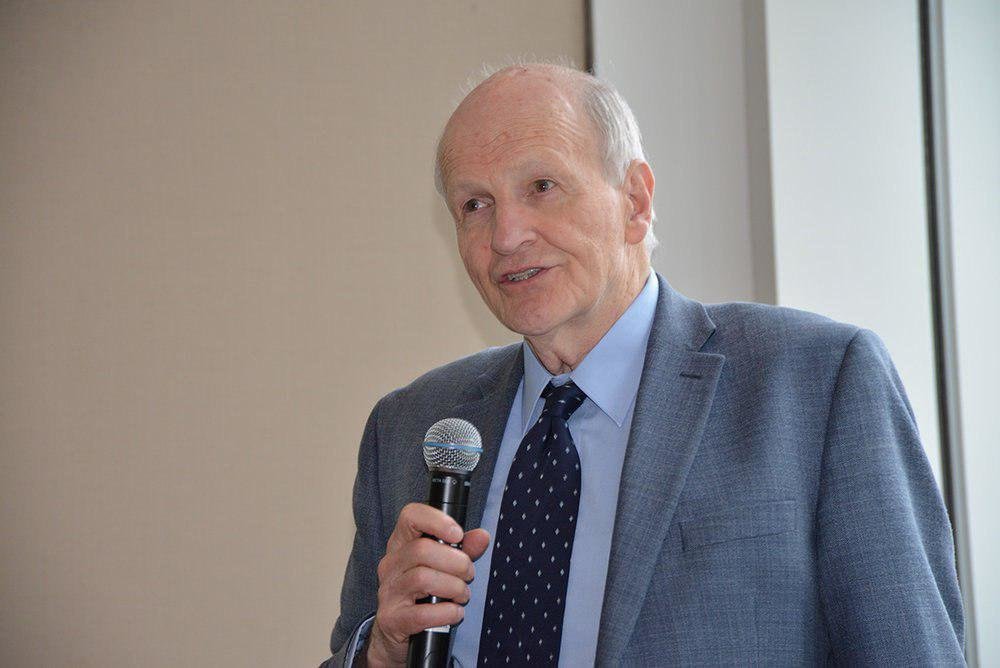U.S. policy has for long time had bias toward Saudi: ex-White House official

TEHRAN – Professor Frank N. von Hippel, former assistant director for national security in the White House Office of Science and Technology says “Under the Obama Administration, Saudi Arabia’s refusal to forego enrichment and plutonium separation prevented an agreement on cooperation on nuclear energy.”
“President Trump cares more about business and less about nonproliferation but Congress can block an agreement on nuclear-energy cooperation if it undermines U.S. nonproliferation policy,” Frank N. von Hippel tells the Tehran Times in an exclusive interview.
He also says “I predict a battle if and when an agreement is sent to Congress.”
Following is the full text of the interview:
Q: After few years, U.S. administration announced will nuclear agreement with Riyadh. Why U.S. convinced to restart negotiation for nuclear agreement?
A: U.S. policy has for a long time had a bias toward Saudi Arabia – perhaps derived from the history of American oil companies in Saudi Arabia. But, since India used U.S. assistance in nuclear energy research and development to acquire nuclear weapons, the U.S. also has had a strong nuclear nonproliferation policy. Under the Obama Administration, Saudi Arabia’s refusal to forego enrichment and plutonium separation prevented an agreement on cooperation on nuclear energy. President Trump cares more about business and less about nonproliferation but Congress can block an agreement on nuclear-energy cooperation if it undermines U.S. nonproliferation policy. I predict a battle if and when an agreement is sent to Congress.
Q: Some argue that if U.S. do not cooperate with Saudi in its nuclear program, Russia and China may do it and this led to reducing American nuclear influence in the region. What is your opinion?
A: Russia’s nuclear industry is already very important in the Middle East (Iran, Turkey, Egypt…). China also has a very strong nuclear industry at home and is beginning to focus more on exports. In the U.S., the nuclear industry is almost dead. It cannot compete with natural-gas, wind and solar-powered plants. I think that the same is true in Iran and Saudi Arabia. One has to look to other motivations (Prestige? A nuclear-weapon option?) to explain their nuclear-energy programs. U.S. leadership on nuclear nonproliferation policy has been important for the past 40 years. Given the importance of the U.S. as an economic and military power, that could continue.
Q: Which model for Saudi’s nuclear plan are likely, JCPOA or U.S. agreement with United Arab Emirates?
A: Even with a strong emphasis on nonproliferation, it may be necessary to compromise with Saudi Arabia as we did with Iran. The JCPOA model of an interim agreement may be the result.
If you would be interested in my personal policy preferences, I would favor a global ban on spent fuel reprocessing (plutonium separation) and on national enrichment plants. Iran’s disinterest in reprocessing could mean that it could support a ban on reprocessing.
With regard to a ban on national enrichment plants, China, France and Russia have national enrichment plants. The plants in Germany, the United Kingdom and United States are owned by a British-Dutch-UK multi-national, URENCO, whose creation was an important step in confidence building in post-war Europe. A multinational solution for enrichment in the Persian Gulf would have a similar significance. Instead of competing Iranian and Saudi enrichment programs, you could have a program in which they were both involved with some partners with expertise in enrichment technology from outside the region.
Leave a Comment